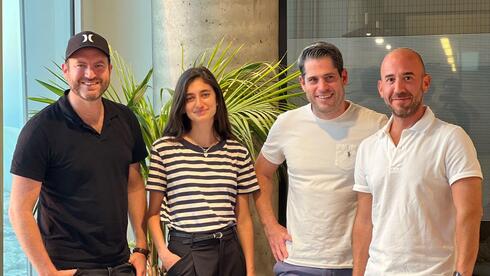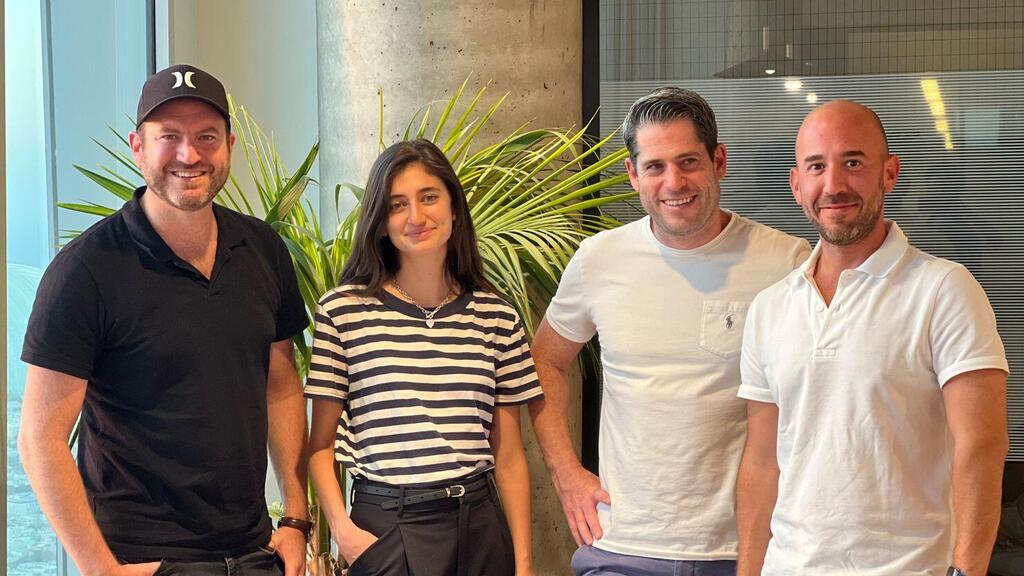
2022 VC Survey
Remagine Ventures: “Hope for the best, but prepare for the worst.”
Eze Vidra joined CTech to offer some predictions in the early stage investment space ahead of the new year
“The same macroeconomic challenges we’re experiencing today will continue to have an impact on Israeli startups and the global tech sector,” explained Eze Vidra, Managing Partner at Remagine Ventures. “The biggest impact we’ve yet to see the full effect on is a potential recession in the US, which is likely to have a negative impact on revenue targets, not just funding. Hope for the best, but prepare for the worst.”
Remagine Ventures is a Seed and pre-Seed early stage fund investing in Israel and Europe tech companies at the intersection of technology and entertainment.
“In general, regardless of stage, companies should come to terms with the current market climate. That means balancing growth with cash flow management, not prioritizing growth at all costs,” he continued. “All startups should expect a tighter fundraising environment in the short term. Startups will likely continue to cut costs and some may have to compromise on down rounds to survive.”
Name of fund/funds: Remagine Ventures
Total sum of fund: $35M
Partners: Eze Vidra and Kevin Baxpehler
Notable/select portfolio companies: Minute Media, Hourone, Syte, Echo3D, Zoog, Sneaky Panda
Vidra joined CTech to offer some predictions in the early stage investment space ahead of the new year
If 2020 was the year of the pandemic, and 2021 was the year of records, how would you define 2022 in the VC sector?
2022 is tech’s hangover year. Funds and startups that ‘partied’ hard in 2021 came to a reckoning that the money is no longer cheap and plentiful. We’re seeing the result in the form of cost-cutting (layoffs), re-pricing (down rounds), and even company closures. The VC slowdown (50% down in Q3 2022 in the US, 36% down in Israel), is a correction to a slower pace of investing, which is more in line with 2020 levels. In the last three years, fund cycles have contracted, and VCs deployed their funds in 2-3 years. Going forward, we’ll see VCs deploying more conservatively as fund cycles extend. Ultimately, the cost of capital has gone up with interest rates rising again, which lowers valuations and places more emphasis on the value of cash flows.
Who are the big winners of 2022 and why?
The big winners of 2022 are the companies that prepared for winter by extending their runway, improving sales efficiency, and cutting burn. Seed and pre-Seed are seeing an increase in activity vs. late stage. Sector-wise, energy and foodtech are high in demand, and so are digital goods and services, spatial computing, and gaming.
Who are the big losers of 2022 and why?
The big losers of 2022 will be the companies that raised at too high valuations. Running out of cash is the top reason companies go out of business. Businesses with low margins and high burn are finding themselves in a tough place. Crypto, fintech, and last-mile delivery are also areas that took a massive hit in 2022.
What do you expect in the VC sector in 2023?
High-interest rates will take time to come down and 2023 will not be a return to 2021. No more FOMO-driven investing at high valuations. VCs will slow down their pace of investments and continue to triage their own portfolios. Many startups won’t be able to raise follow-on funding and will close down.
On the optimistic side, over the second half of 2023, we’ll start to see more investment activity, especially for Seed and pre-Seed startups. The upside of tech layoffs and reduced valuations is talent becoming available; some of this talent pool may choose to start new companies or look for upside opportunities in early-stage companies.
What global processes will affect (positively and negatively) the Israeli market?
The same macroeconomic challenges we’re experiencing today will continue to have an impact on Israeli startups and the global tech sector. The biggest impact we’ve yet to see the full effect on is a potential recession in the US, which is likely to have a negative impact on revenue targets, not just funding. Hope for the best, but prepare for the worst.
How should different companies (large, medium, early-stage) prepare for the coming year?
In general, regardless of stage, companies should come to terms with the current market climate. That means balancing growth with cash flow management, not prioritizing growth at all costs. All startups should expect a tighter fundraising environment in the short term. Startups will likely continue to cut costs and some may have to compromise on down rounds to survive.
As an investor, my focus is on the early stage and my advice hasn’t changed much: focus on the customer and on execution. Constraint is the mother of invention and limited resources lead companies to be more scrappy and in some cases innovative: forge creative partnerships, find cheaper distribution and continue to push innovation in product. I also think now more than ever, smart money makes a difference.
What will be of the dozens of unicorns born last year?
It’s hard to put all the unicorns in one basket as some built healthy businesses and are well capitalized. Others raised money at high multiples compared to their progress and might find it difficult to continue raising money at higher valuations. Unicorns that have to raise capital in the current climate will opt for down rounds and debt (which has become expensive due to the rising interest rates). Those that struggle to raise might choose to explore strategic acquisitions, and we’ll see more exits and consolidation in the next two years.
What sectors in high-tech should we look out for in the coming year - and why?
The fundamentals didn’t change for us. People spend more time and money online and gaming is the most popular form of entertainment for anyone under 50. We’re excited by the potential of new technology: for example, generative AI is dramatically reducing the cost and barriers for content creation and we will see generative AI and automation enter every role in the company, and tackle different use cases across verticals. Gaming and metaverse will continue to attract investment. While I expect a slowdown in crypto investing, we are still looking for meaningful opportunities.
In addition, there’s over $64 billion newly raised for climate tech we’re likely to see a lot more innovation in that space.
HR: Do the layoffs, those that have already happened and those that are coming, help to fix in any way the distress experienced by companies over the past 2-3 years?
Top talent will always be the source of competition for companies as it’s the lifeblood of tech companies. And as a result, we will see wages drop for top talent, especially on the technical side. With that said, as companies tighten their belts and a lot of the excess we saw in 2021 in the form of extravagant parties and overseas (as mocked by Eretz Nehederet/ Webos) will subside. I also believe that we will continue to see layoffs in 2023.
We should also consider a silver lining in the current correction: the talent that got laid off or quit Twitter and Meta have been trained at these big tech companies and might find themselves either starting companies or joining companies, especially in their areas of expertise like consumer, metaverse, social media.
Additional comments:
2023 is likely to be a tough year on the macro level, but I truly believe it’s a great time to start new companies. Seed and pre-Seed investment levels and valuations remain healthy, there’s more talent in the market and less competition. From a technology point of view, new tech tools like generative AI means that tasks can be accomplished with fewer resources and at a higher speed. Founders would be wise to take advantage of their key benefits of being a startup: speed and innovation.
Munch, Sneaky Panda - Remagine Ventures’ notable portfolio companies
Munch:
Content Marketing, AI, Video: A data-driven content creation platform that maximizes ROI on video production by using AI to automatically identify the most engaging parts of any video, and Generative AI to generate short-form social content pieces out of the original video.
Founders: Oren Kandel, Peter Naftaliev
Founding Year: 2021
Number of employees: 7
Explanation behind investment:
Oren and Peter understood that content creation, in particular video, is still a cumbersome process. To maximize the impact of the content, a company needs the ability to use data extracted from the content and from the social platforms to generate the best outcome at the optimal timing. Munch has built a repurposing engine that automatically creates clips that are branded, and fit the format of the target site: TikTok, Instagram, Youtube, LinkedIn, and more. Automation takes out 90% of the burden and their auto-tagging of video stood out in the market.
Sneaky Panda
Mobile games: creating a sub-genre casual games for mobile
Founders: Ron Rejwan and Niv Touboul
Founding year: 2021
Employees: 14
Explanation behind investment:
Ron and Niv are both seasoned gaming entrepreneurs. Niv sold Upopa games, his previous startup, to Ironsource and led the gaming studio activities, and Ron was the co-founder of Jellybutton Games, which was sold to Playtika. We were impressed with the team’s vision of creating a new casual gaming genre, and their data-driven approach to launching new gaming experiences.













